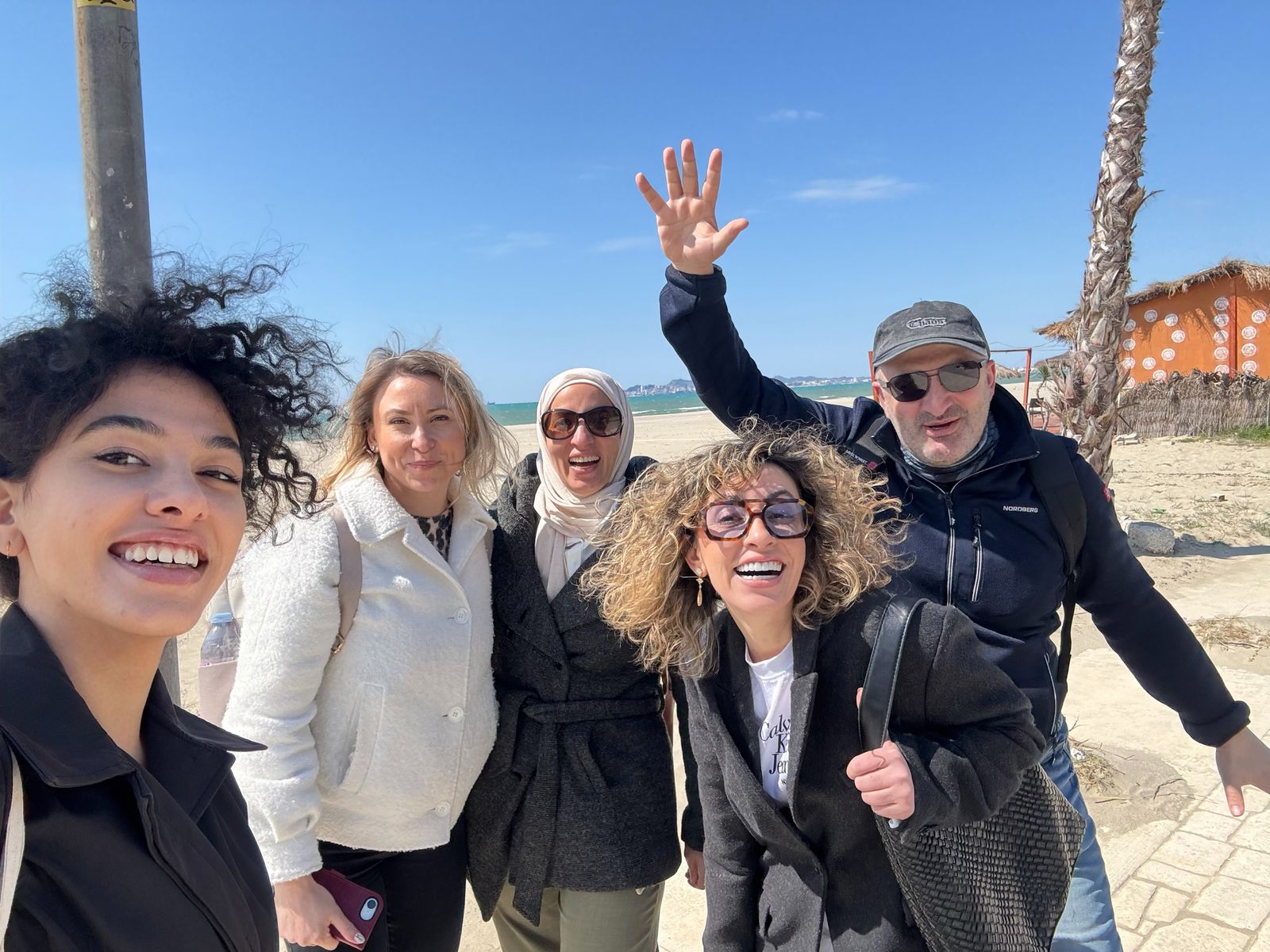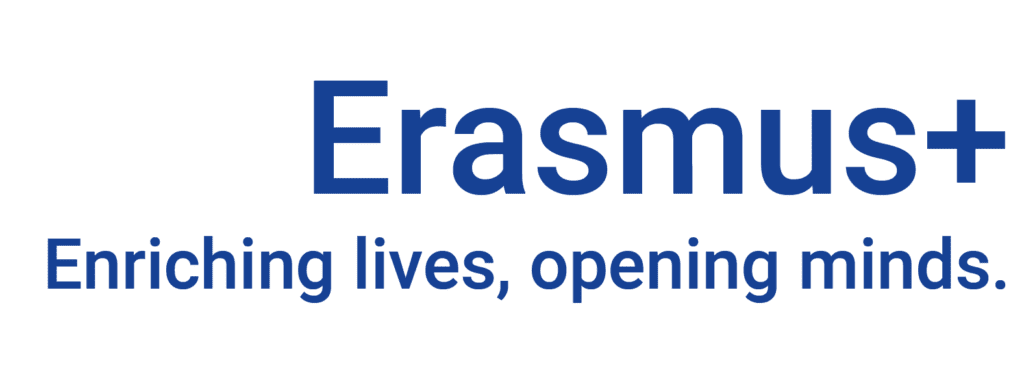SALTO EuroMed
To connect with ourselves and heritage, we should look at our past. What if we travel back to 7000 BC?
Find out more about a youth exchange in Egypt, where mysteries are unveiled.
The idea flare
What if we create a project to connect modern with the old? This idea was exchanged between an Egyptian and Polish organization in 2020 to bring youngsters together, root them in their heritage, and disconnect from the outer world (as we experienced in ancient times), but how to do it?

Involving a mix of countries affected by mobility of people, countries connected in the past starting from the Roman Empire passing by Andalusia, and countries with no direct connection was our go-to answer resulting in involving youngsters from Poland, Greece, Spain, Jordan, and Egypt.
To make it more adrenaline-friendly, we wanted to travel back to 7000 BC — well, sort of! Aswan was our playground with its view of the river Nile. Participants were not just exploring ruins, they dived into daily adventures that even began before the project, but how were they? Was it worthwhile? Let’s find out.
Collaboration in practice
As participants have met in Aswan, the boat became their gateway to the island with no direct usage of the internet, it was just them, the coloured Nubian-style huts, Nubians, the Nile, and crocodiles… (just kidding). The project unfolded through a variety of activities including workshops, cultural visits, and intercultural evenings.
Workshops
The outdoor workshops delved into how participants relate to their heritage and identity, cultural barriers, stereotyping, and inclusion through group competitions, sketches, and discussions about each country’s traditions starting from some debates about songs that turned into a rivalry, fiercer than an Olympic competition between Spain and Greece, up to more culturally deep questions. The most inspiring thing about this were the groups that worked together randomly along with the activities they initiated such as celebrating International Women’s Day.
Nubian cultural immersion activities.
Another pillar was the immersion in the Nubian society where participants witnessed first-hand the Nubians who lived in south Egypt for hundreds of years and kept their unique identity, language, and traditions while being fully integrated.
Participants took part in a cultural Nubian night with henna art as canvases on their hands, and hours of Nubian dancing (and Hookah). They also learnt about heritage from their visit to a local house where everything was “literally” made from palm trees (sweeper, decorations, and even roofs), and where they kept crocodiles as their “cute pets”, to the walk the talking activity up on the mountain, where some of whom went back on a camel (a very Egyptian experience). Despite all this, the thing that immersed the participants in the culture most was the daily gestures with the locals and noticing their unique traditions which showed in every detail.
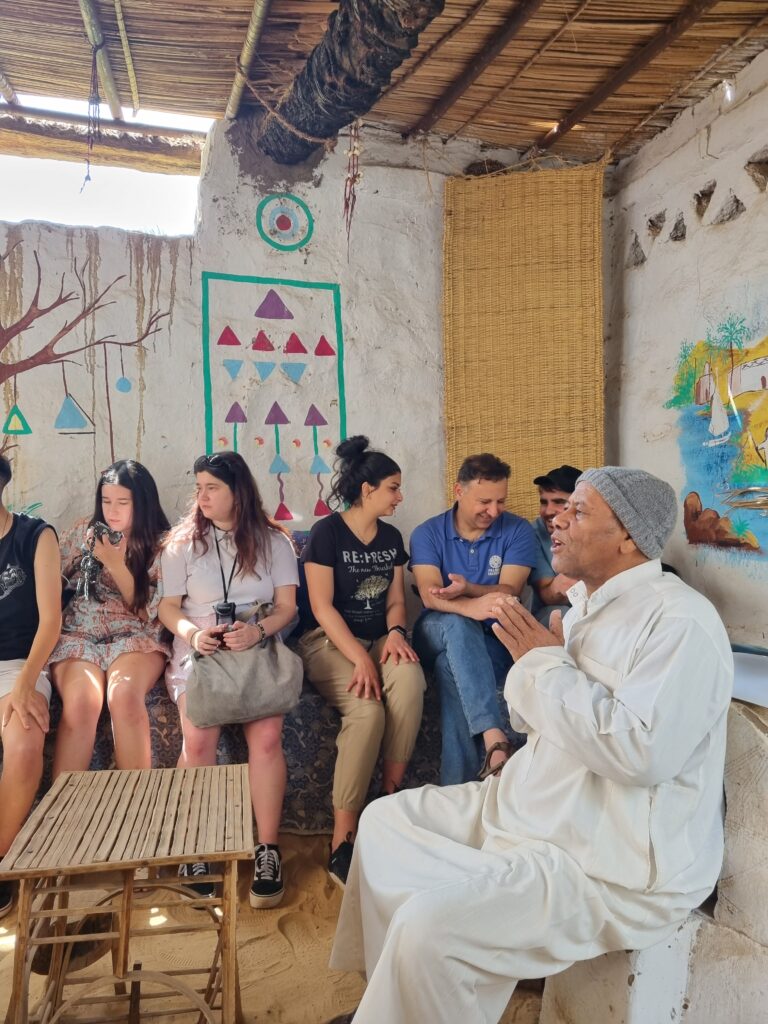

Intercultural activities
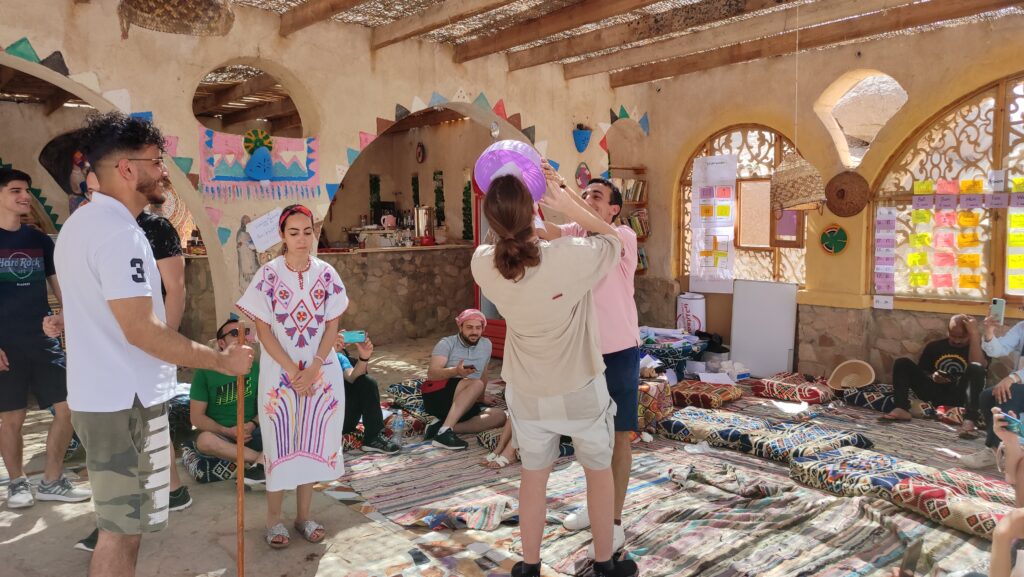

The intercultural activities started from a “cup gift giving” that had us feeling as if we were in a global tea party, to how each partner represented their national clothes, music, food, and treasure hunts/games. We were surprised by how similar rhythms were in each country’s songs, and experienced the national games, which are a united language.
Participants’ experiences
“Participating in this youth exchange was a transformative adventure that exceeded all my expectations. It offered me the perfect blend of cultural exploration and personal growth. Connecting with diverse youth from around the world, I gained insights into different perspectives, and learned the value of diversity, where the memories of this youth exchange in Aswan continue to shape my worldview, leaving me with a deep sense of shared humanity” – shares Mohamed from Egypt.
Bishoy from Egypt speaks about how he felt about the project and what he gain from it – “When I got accepted, I was afraid, as it was the first time to directly connect with people that I saw as coming from another world just because they were different. I had doubts about the ease of my involvement in the group. However, this feeling faded once I stepped into the project. The most important lesson that I learned was the idea of humanity. This was a stepping stone as I felt as if I were getting out of my cocoon. I embraced differences and experienced how we can be united even in the smallest interactions, which made me feel a sense of fulfilment. I was able to redefine a lot of inner values. This project was 9 days long, yet the friendships lasted beyond it.
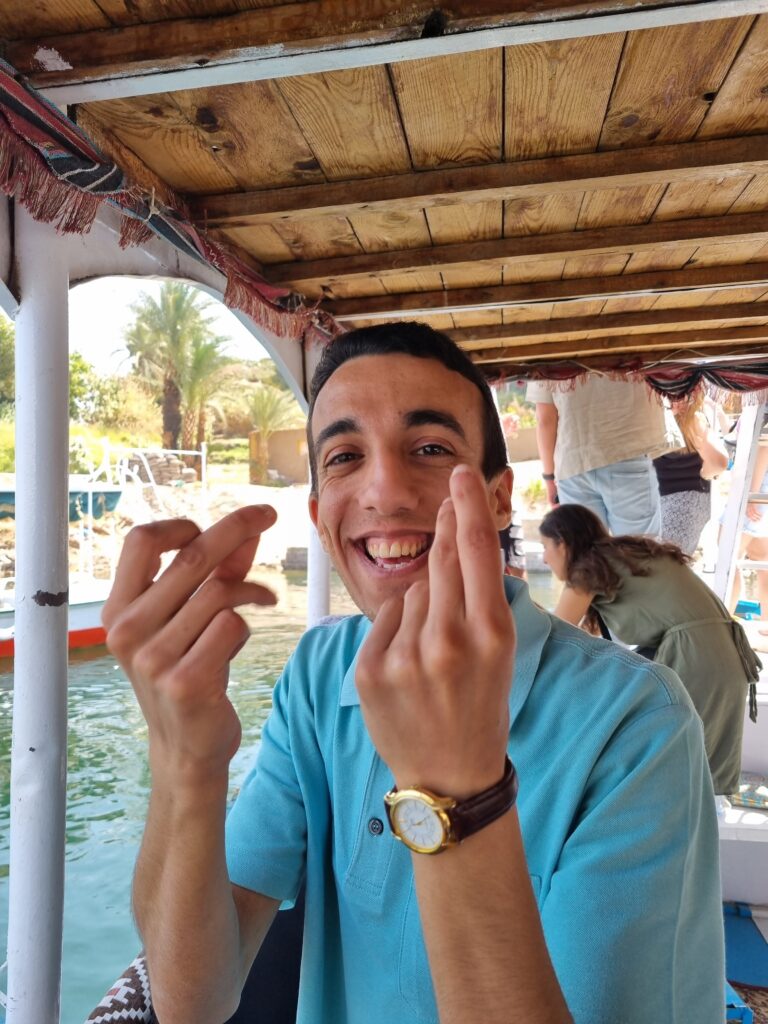

“A situation I will never forget is an activity called Picture of the similarities, where the facilitator asked questions about values, identities, and actions. Once he recalled something, people who identified with them went to the stage to take a picture. With most of the questions, only a few got to the stage, however, with the question Have you ever felt lonely? all of the group went on the stage, which touched me as I saw how we all experience the same feelings, no matter how many friends someone has, and that we should be more empathetic and supportive to our friends and community” – adds Bishoy.
What’s more to come?
Building on the experience as project’s partners, it may not sound the easiest considering partnerships among such different countries, geographically, and culturally. But all challenges were easily faced with communication and openness. In fact, it is one of our most unique collaborations, as we found how effective it was for people from very different cultures to meet where the impact surpassed our expectations. It was worth it, witnessing how the participants were and still are connecting, and the development they have been through after the project.
Because of these outcomes, the importance of connecting to our heritage and promoting intercultural dialogue was a success and a source of inspiration for us to further develop it for other young people. That is why we will have a second version of the project with new thrilling adventures for another diverse pool of youth in Germany in 2024 and we also plan for a new youth exchange in Egypt, this time to explore Fayoum oasis.
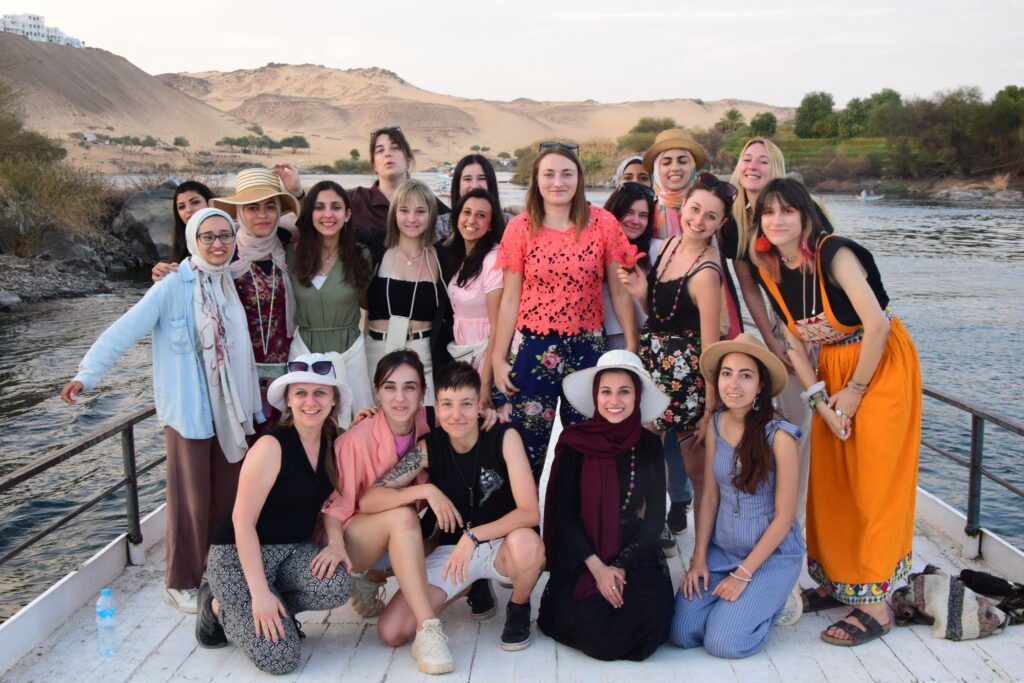

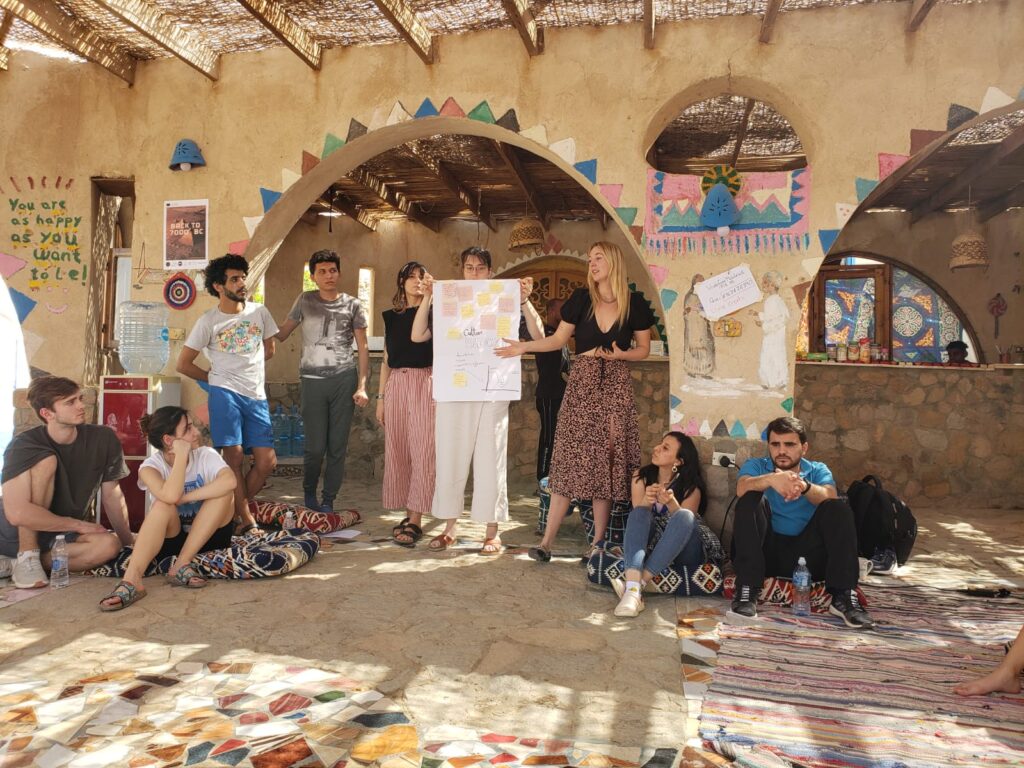

| The youth exchange was a result of the successful partnership of Level Up (Poland), Have A Dream (Egypt), Europia (Spain), Desert Bloom (Jordan), and United Societies of Balkans (Greece). Read another article about this unique youth exchange! |
